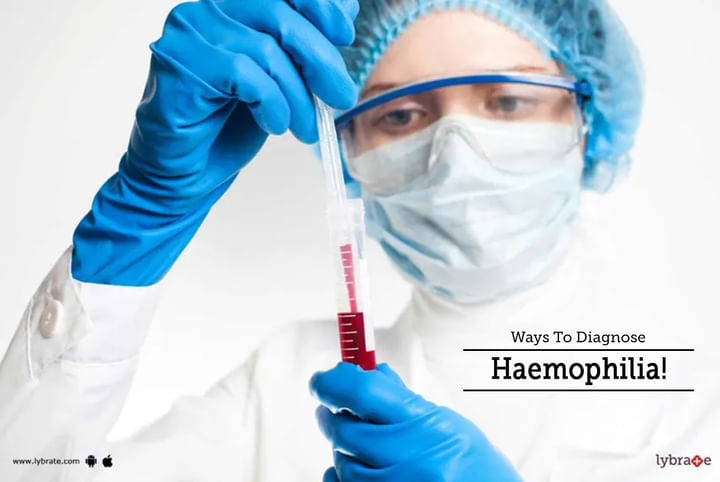Ways To Diagnose Haemophilia!
Haemophilia refers to a bleeding disorder where a person’s blood does not clot normally. Although the symptoms are alike in both haemophilia A and haemophilia B, the underlying causes are different. A person with haemophilia A lacks enough of blood clotting factor VIII while a person with haemophilia B has a deficiency of factor IX. Therefore, it is important to undergo diagnosis to determine which type of haemophilia you have and plan treatment accordingly.
How is haemophilia diagnosed?
The first step of diagnosis involves the doctor inquiring about your family history and conducting a thorough physical examination to confirm whether you have haemophilia. However, not everyone with haemophilia has a history of this condition in the family.
If you do not have a family history of haemophilia, the doctor might suggest a few other tests and procedures to confirm the diagnosis. This involves clotting factor tests and screening tests. Clotting factor tests can help detect the severity and type of bleeding disorder while screening tests can reveal if your blood is clotting properly.
Screening tests
Your doctor may recommend the following screening tests –
-
CBC or Complete Blood Count
The CBC test checks the level of haemoglobin, the count and size of RBCs, as well as the count of WBCs and platelets in the blood. The results of CBC are normal in people with haemophilia. However, in the case of prolonged or heavy bleeding, the results may show a steady decrease for haemoglobin.
-
APTT or Activated Partial Thromboplastin Time
The APTT test determines the time it takes for blood clotting, as well as the ability of clotting factors XII, XI, IX, and VIII. If one of these clotting factors is below the normal, it will take much longer for blood to clot. Typically, it takes a longer time for blood to clot in people with haemophilia B and haemophilia A.
-
PT or Prothrombin Test
Similar to the APTT Test, this particular test also helps check how long it takes blood to clot. Besides, Prothrombin Test measures the clotting ability of factors X, VII, V, II, and I. If any of these factors are excessively low, it means that blood clotting takes longer than normal. The test results are normal for those with haemophilia B and haemophilia A because these conditions are caused due to defects in factors IX and VIII, respectively.
-
Fibrinogen Test
Fibrinogen Test, also known as clotting factor 1, evaluates the person’s potential to form a blood clot. The test is carried out in combination with other tests or when the individual has shown abnormal results in the APTT or PT tests.
- Clotting Factor Tests
Haemophilia B and haemophilia A are classified as severe, moderate, or mild, based on the levels of clotting factors IX or VIII. If the level of clotting factor is between 5% and 50%, the person is said to have mild haemophilia. The level of the factor is between 1% and 5% in people with moderate haemophilia. Those with clotting factor level less than 1% are said to have severe haemophilia. A clotting factor level between 50% and 100% indicates that the person is healthy.
- Pre-implantation Diagnosis
Female carriers of the disorder can opt for pre-implantation diagnosis to be sure that they do not pass haemophilia onto their children. The procedure is done in conjunction with IVF treatment.
- Prenatal Testing
Pregnant women carrying haemophilia can undergo this testing between the ninth and eleventh week into their pregnancy by CVS or Chorionic villus sampling, or at a later stage (week 18 or more) with the help of foetal blood sampling.
Once haemophilia is confirmed, your doctor or healthcare provider will determine the appropriate line of treatment depending on the severity and type of the disorder. Standard treatment for the rare genetic disorder includes medications, injections, and replacement therapy.



+1.svg)
